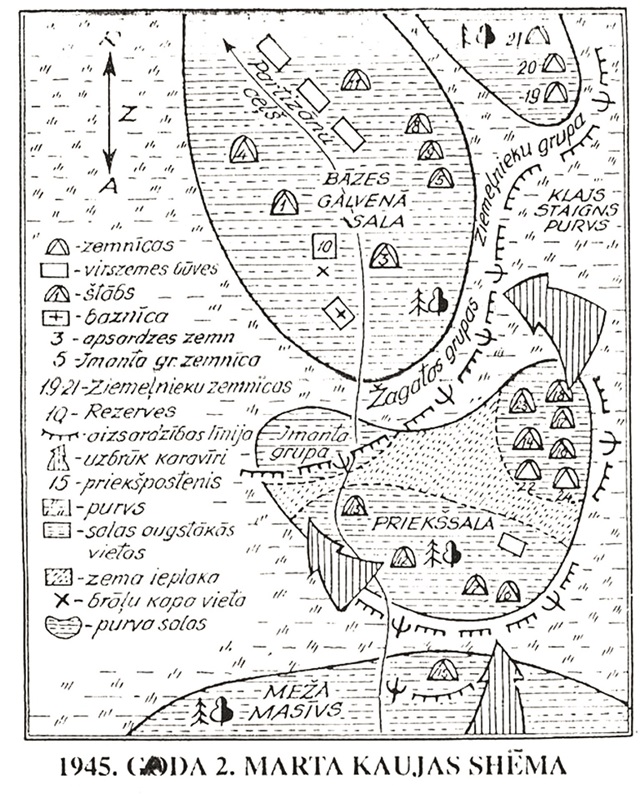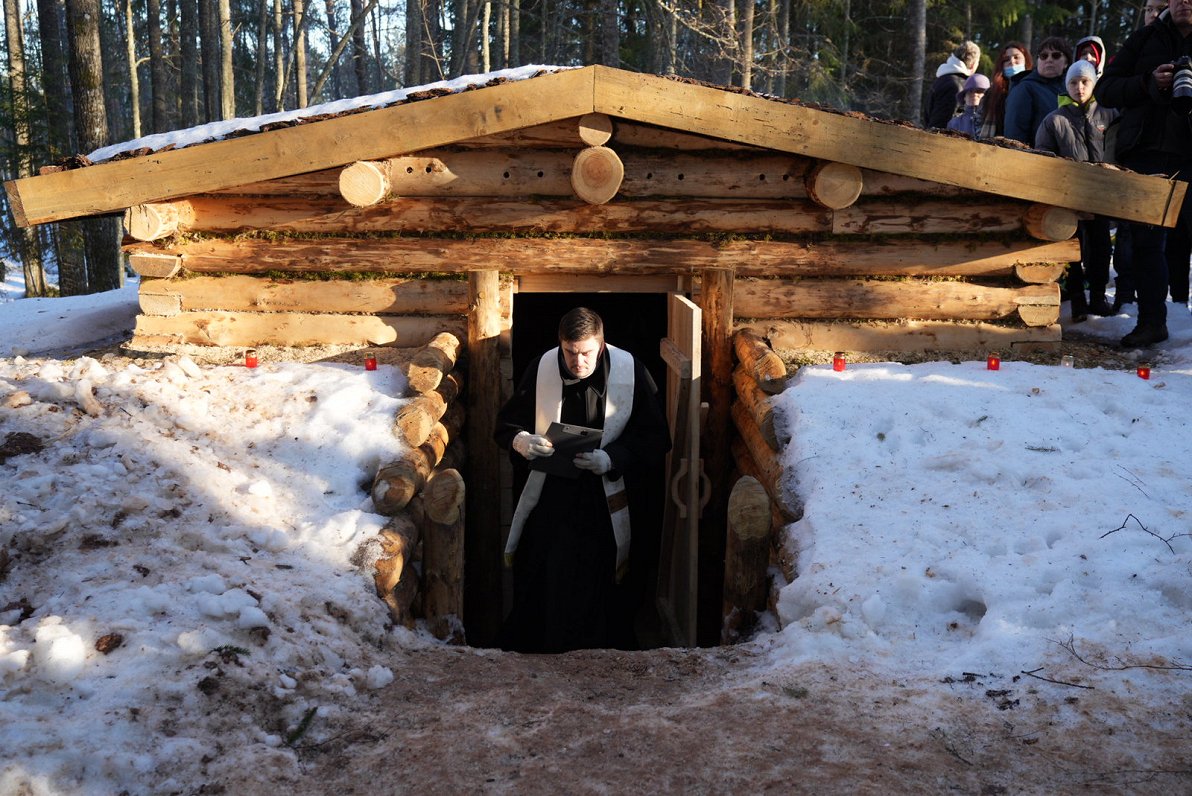"Access to the construction site was very difficult. Logs and cement bags for the restoration of the church bunker were carried by hand, and pulled with small carts, because it is forbidden to move heavy machinery in the territory of the nature reserve. During the construction we encountered several challenges - in the autumn due to rainfall it was especially difficult to deliver materials to the site, but in winter the low air temperature made it difficult for the workers to carry out the work on site. However, the early frost was good for the contractor - it was easier to deliver the materials to the site,” said Uģis Perševics, Construction Manager of Latvian State Forests Construction department, which carried out the rebuilding works.

The Stompaku Swamp camp is located on a bog island chosen for defensive purposes by the National Partisans, who carried out a dogged resistance to Soviet occupation at the end of the Second World War and, in places, even into the 1950s. Stompaku was one of the largest national partisan settlements in the Baltics with 24 bunkers and several surface structures was built in the vicinity, where about 400 Latvian freedom fighters had found refuge and a formed a hidden, defensive camp.
On March 2, 1945, the famous Battle of Stompaku took place, when Soviet forces surrounded and attacked the partisan camp. The fighting lasted all day, and eventually the partisans successfully managed a breakout and again melted into the forests.
Until the restoration of the bunker, only a couple of trenches and a white cross marked the location of the former chapel.
Among those in attendance at the opening ceremony was President Egils Levits who said:
“They hoped for the support of the West, but at that time the West chose to remain silent because it was more convenient. Nevertheless, the national spirit of Latvian patriots led to resistance. In fact, an island of free Latvia was formed here - a territory that was free from the occupiers.”
To learn more about the National Partisans of Stompaku and elsewhere – often referred to as the 'Forest Brothers' – and their remarkably tenacious fight against overwhelming odds, we recommend watching the short documentary below.























